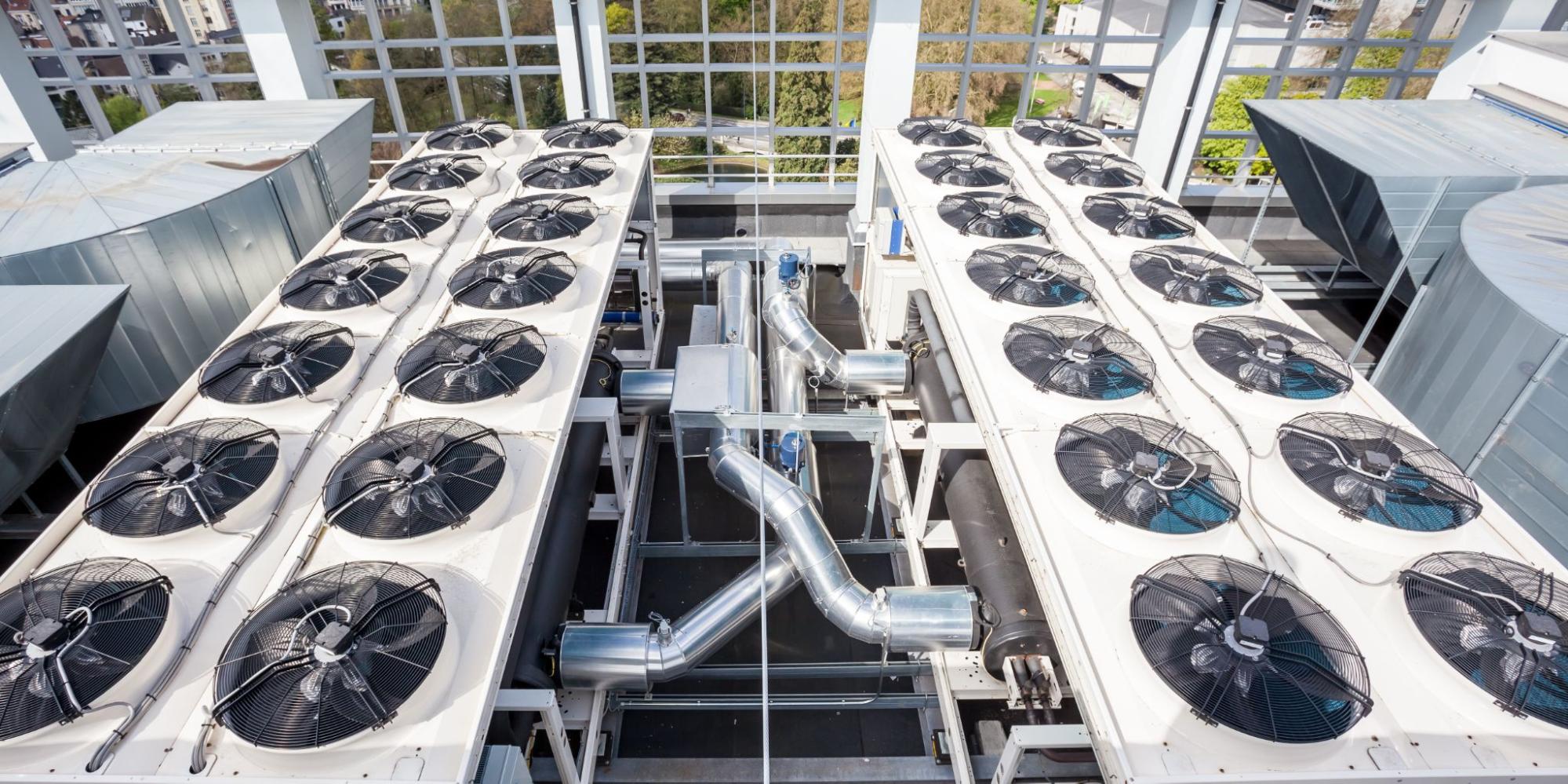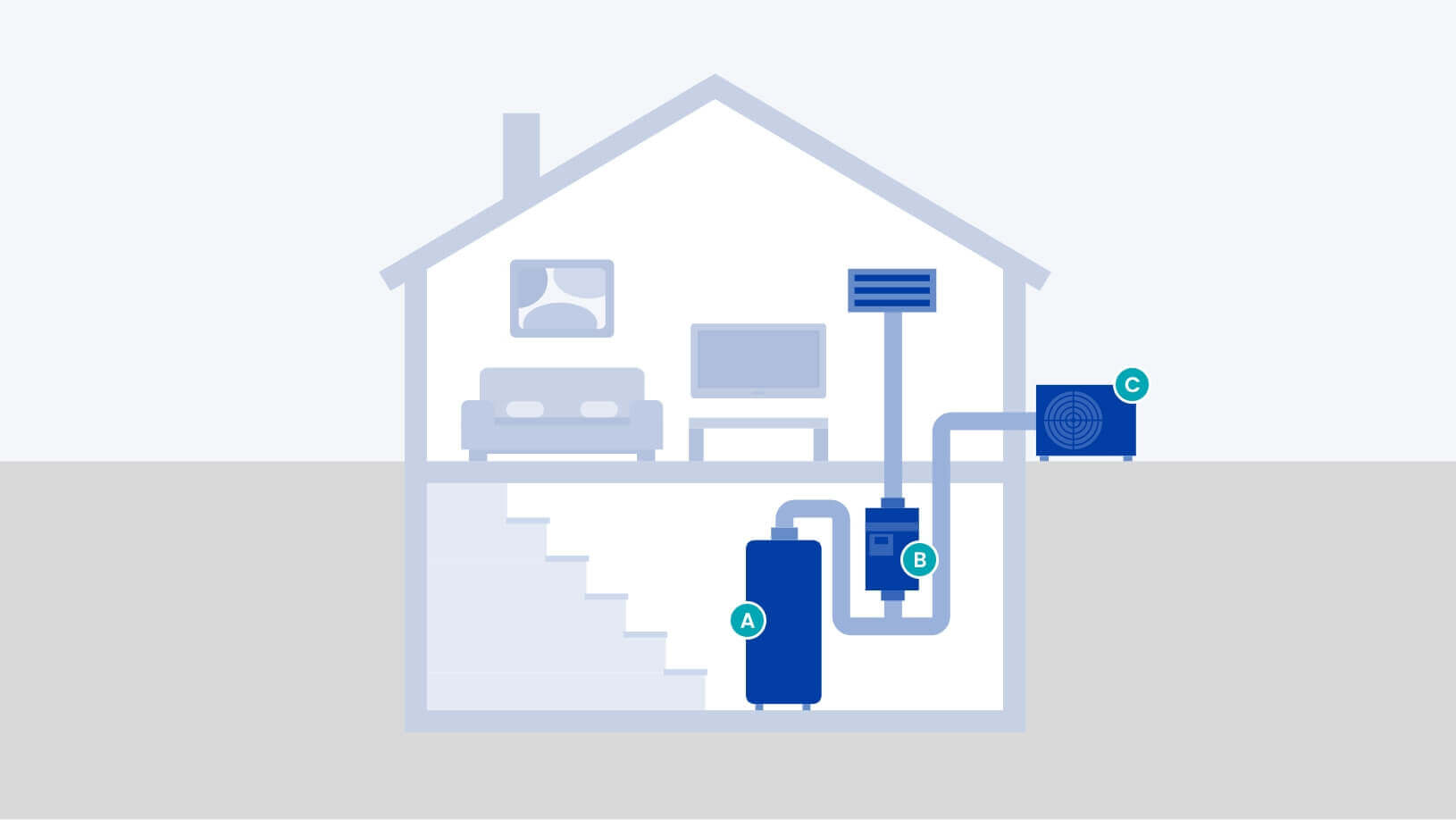An In-Depth Check Out HVAC Providers and Their Influence on Energy Performance and Cost Financial Savings
The duty of HVAC services in enhancing energy performance and accomplishing cost savings is a lot more critical than ever, as organizations and property owners seek lasting remedies in an increasingly eco-conscious globe. With technological improvements like wise thermostats and high-efficiency components, the possibility for enhancing system efficiency is huge. Yet, the real impact of these developments depends largely on normal upkeep and positive issue management. As we check out the complex connection in between a/c systems and operational expenses, consisting of the shift towards eco-friendly choices, the concern arises: just how can these strategies be properly carried out to take full advantage of both eco-friendly and economic benefits?

Relevance of HVAC Equipments
a/c systems are an essential element of contemporary buildings, playing a critical role in keeping healthy and comfortable indoor environments. These systems, encompassing air, ventilation, and home heating conditioning, are essential for controling temperature level, moisture, and air top quality, thereby guaranteeing the health of occupants. Efficient a/c systems contribute significantly to creating an optimum indoor climate, which is crucial for both residential and commercial areas.
In industrial structures, heating and cooling systems are essential to providing a safe and effective setting. By managing interior climate conditions, these systems assist prevent the growth of mold and the spread of air-borne pollutants, thus guarding the health of workers and customers. Additionally, in household settings, heating and cooling systems improve living problems by using consistent thermal convenience and enhancing interior air quality, which is important for total health.
In addition, the style and maintenance of heating and cooling systems have a straight effect on energy consumption and functional expenses. Effectively designed and preserved systems can dramatically reduce energy use, bring about decreased utility bills and a smaller carbon impact. The effectiveness of these systems hence plays a crucial duty in promoting sustainability and energy preservation within structures, highlighting their value in the modern-day building landscape.
Developments in Cooling And Heating Innovation
Technology in cooling and heating modern technology is reinventing the means structures handle indoor environments, introducing a brand-new age of efficiency and control. Current improvements have concentrated on enhancing energy intake while boosting individual convenience. One significant advancement is the combination of wise thermostats, which utilize man-made intelligence to find out tenancy patterns and adjust temperatures appropriately, decreasing unneeded power usage.
Variable Refrigerant Circulation (VRF) systems represent another significant leap onward. These systems permit specific temperature level control in various zones of a structure, improving convenience and reducing energy waste. VRF innovation is particularly beneficial for big business spaces, providing adaptability and scalability.
Furthermore, the development of Web of Things (IoT) gadgets has actually changed HVAC systems right into interconnected networks capable of real-time information collection and analysis. This connectivity enables anticipating upkeep, guaranteeing systems operate at peak performance and decreasing unanticipated downtime.
Moreover, advancements in products and style, such as the usage of high-efficiency coils and compressors, have improved overall system efficiency - Heating Contractor. The adoption of environmentally pleasant refrigerants likewise underscores the industry's commitment to sustainability
These technical technologies are critical in decreasing functional prices and ecological influence, establishing brand-new standards for developing environment monitoring.
Cooling And Heating Maintenance and Effectiveness
Ensuring optimum efficiency of cooling and heating systems extends past technical improvements; it likewise rests on efficient maintenance methods. Normal maintenance is important for maintaining performance, reducing energy intake, and prolonging the lifetime of a/c systems. The primary goal is to make sure that all elements work at their peak capacity, thus decreasing power wastefulness and preserving constant interior comfort degrees.
Routine maintenance jobs, such as cleansing or changing air filters, examining refrigerant levels, and checking ductwork for leakages, are necessary for preventing unneeded pressure on the system. Filthy or clogged up filters can obstruct air movement, triggering the system to function more challenging and take in even more energy. Likewise, poor refrigerant levels can minimize cooling down effectiveness, leading to higher functional expenses.
Furthermore, routine examinations by certified experts can recognize potential issues prior to they intensify into costly repairs or system failings. These examinations typically include examining electric links, calibrating thermostats, and guaranteeing the general integrity of the HVAC system. By resolving minor troubles early, property owners and services can stay clear of unanticipated failures and enhance power efficiency.
Cost-Effective A/c Solutions
For those looking to obtain the most out of their air, air flow, and home heating conditioning systems without breaking the bank, exploring affordable heating and cooling services can make a substantial distinction. One instant action is to spend in programmable thermostats, which enable customers to establish certain temperature levels for different times of the day, maximizing energy use and minimizing unnecessary consumption. By automating temperature adjustments, house owners can attain significant savings on energy costs.
Normal maintenance is an additional vital part of affordable heating and cooling administration. Guaranteeing that filters are cleaned up or changed routinely, ductwork is secured, and systems are serviced by experts can avoid expensive repair services and boost system long life. Preventive maintenance not just keeps system carrier ac service effectiveness but also aids in preventing unexpected break downs that can result in expensive emergency repair services.
Additionally, retrofitting existing systems with energy-efficient parts, such as variable speed motors or high-efficiency compressors, can be a prudent investment. These upgrades enhance operational effectiveness, lower power usage, and can commonly be Look At This executed at a portion of the cost of a complete system substitute.
Environmental Impact Reduction
Reducing the environmental impact of A/c systems is essential in today's quest of lasting living. HVAC systems are significant contributors to power usage, accounting for virtually 40% of power use in commercial buildings.
Technological innovations in HVAC design and procedure, including the assimilation of clever thermostats and energy-efficient heatpump, are crucial in lowering carbon footprints. These innovations permit optimized energy use, reducing waste and improving general system efficiency. Furthermore, embracing routine maintenance methods ensures a/c systems operate at peak efficiency, more stopping unnecessary energy intake.
Moreover, using environmentally pleasant refrigerants is important, as conventional refrigerants, like CFCs and HCFCs, have actually been phased out as a result of their ozone-depleting homes. Modern alternatives, such as hydrofluoroolefins (HFOs), deal minimized environmental threats, lining up with worldwide ecological methods. By accepting these lasting techniques, HVAC solutions can play a transformative role in lowering environmental influences, promoting energy efficiency, and promoting a more sustainable future.
Conclusion

Additionally, the design and maintenance of Heating and cooling systems have a straight effect on power consumption and functional expenses. Routine maintenance is vital for sustaining efficiency, minimizing power consumption, and prolonging the life period of A/c systems. Heating and cooling systems are substantial contributors to energy intake, accounting for virtually 40% of power usage in commercial buildings. In addition, adopting routine upkeep techniques guarantees Cooling and heating systems operate at peak efficiency, more stopping unneeded energy consumption.
The shift to environmentally friendly Heating and cooling systems additionally advertises and lowers operational expenses sustainability. (Heating Contractor)